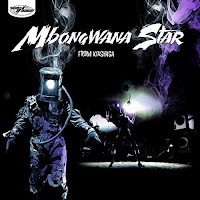 |
| Photo credit: Kate Wurtzel |
I began this year as an Austinite, teaching band at a troubled middle school. By the end of February, however, the pace began to pick up. My second daughter EJ was born, I gave notice at my school, got a new job, went on a cruise, moved out of our house, lived out of a hotel, moved into a new house, and taught my first season of marching band while battling a plague of family illness. It's like life has been on fast-forward all year long.
Even though life looks different, I have to say that things are better than they were at the end of last year for me personally. I’m afraid that I can’t say the same for the state of the world. Trump’s election is distressing to say the least. I hope that he either surprises us, or is quickly impeached. More distressing, however, is the way that he has empowered the worst aspects of American society. I am up in arms as to how I'm going to proceed to teach my children to do the right thing, because I feel like that is in opposition to what they will be exposed to on a daily basis by the powers that be.
Of course, the easy answer is to teach love and understanding in the home. In practice, though, the pressure that we all have felt as my family forges a new chapter for themselves has sometimes made that difficult. It has been a tough year. It is my most fervent hope, however, that 2017 will represent a year of personal healing for everyone as they brace themselves for the coming storm.
Now you should press "play" and read on....
Last month, I announced a few changes in the methodology that I adopted to create this year’s “best-of” list. The basic guidelines, however, remain the same, and can be accessed here.
14. Field Music - Commontime: Once again, Field Music have successfully combined their impressive musicianship and outstanding performance skills with singable melodies. For the trained musician, there is much to enjoy on Commontime, but even my five-year-old daughter appreciates its more accessible aspects.
13. Frost* - Falling Satellites: The latest release from Frost* inhabits that fertile ground between prog and pop that, when done well, hits me where I live. Despite teetering on the edge of production-related sterility at times, the band’s energy and writing strengths kept Falling Satellites in rotation for months.
12. Weezer - Weezer [white]: Even if you're only a fan of the blue album, I would argue that there have always been great pockets of brilliance throughout Weezer’s entire catalog, even during their lowest points. This album, however, pulled me out of my moratorium on Weezer albums, and it fortunately represents an upward swing in their work.
11. The Lennon/Claypool Delirium - The Monolith of Phobos. This one took a while to grow on me, but thanks to Sean Lennon’s songwriting and arranging input, this psychedelic project to stands apart from Claypool’s work with Primus. It would be interesting to see this partnership develop into something even more ambitious.
10. Zweiton - Form. This album is wide-ranging, mathematically complex, continually engaging, and sometimes downright funky. After months of listening, I am still unraveling its compositional and technical nuances.
* there aren't any high quality tracks on YouTube from Form, so check out this one above from Zweiton's bandcamp page.
9. S U R V I V E - RR7349: Since discovering them a couple of years ago, S U R V I V E has evolved from a “band I like” into a genuine musical influence. The compositional strength of RR7349 and it’s vision of a digital future through an analog past continues to inspire me in ways that I hope to make real in 2017.
8. Kayo Dot - Plastic House at Base of Sky: This dense album took a while to unravel, but it really came to have a deep meaning for me after I wrote its freestanding post earlier this year. Plastic House at Base of Sky has a nostalgic aesthetic that I somewhat arbitrarily connected to the day we moved out of our little house on the hill, and now it seems bound to the complicated emotions I experienced that day.
7. David Bowie - Blackstar. It was around this time last year that it seemed like Bowie's choices of players on his new album indicated he was up to something. Little did I realize he was creating his own eulogy.
6. Kaitlyn Aurelia Smith - EARS: When I learned about Smith and her experimentation with the Buchla Music Easel, I put EARS in rotation and it stopped me in my tracks. Its unique combination of texture, composition, and improvisation kept it in constant, uninterrupted rotation for almost two weeks straight, and it continued to hold up under repeated listenings throughout the rest of the year.
5. Marillion - F.E.A.R.: I was somewhat hard on this album when it came out, but as I have gotten my ears around it I have come to appreciate it immensely. Hogarth’s Marillion has made several great albums, but by harnessing the countercultural angst that drove the group’s earliest incarnation, F.E.A.R. might be their defining statement.
4. Everything Everything - Get to Heaven: Like My Brightest Diamond last year, Get to Heaven ended up being a favorite that, if overall requested plays by family members were the primary factor, probably should be number one. It carries the weight of bands like Elbow with a nonchalance that recalls the Gorillaz.
3. Hans Zimmer - Interstellar OST: When I finally found my bluetooth speaker months after accidentally packing it, I had a hard time listening to anything besides the Interstellar OST when I was up for EJ’s late night feeding. Between this setting and the complex feelings the soundtrack evokes from the movie, I can’t think of another single album that represents those intimate experiences.
2. Anderson/Stolt - Invention of Knowledge: It's obvious to point at Jon Anderson's vocal prowess in this album’s success, but it has also been his tendency in recent years to wander from idea to idea without finishing any one thing. Invention of Knowledge stands up to Anderson’s best work, however, thanks to Stolt’s ability to arrange his ideas within larger compositions while he himself remains relatively transparent.
2016 Album of the Year







































